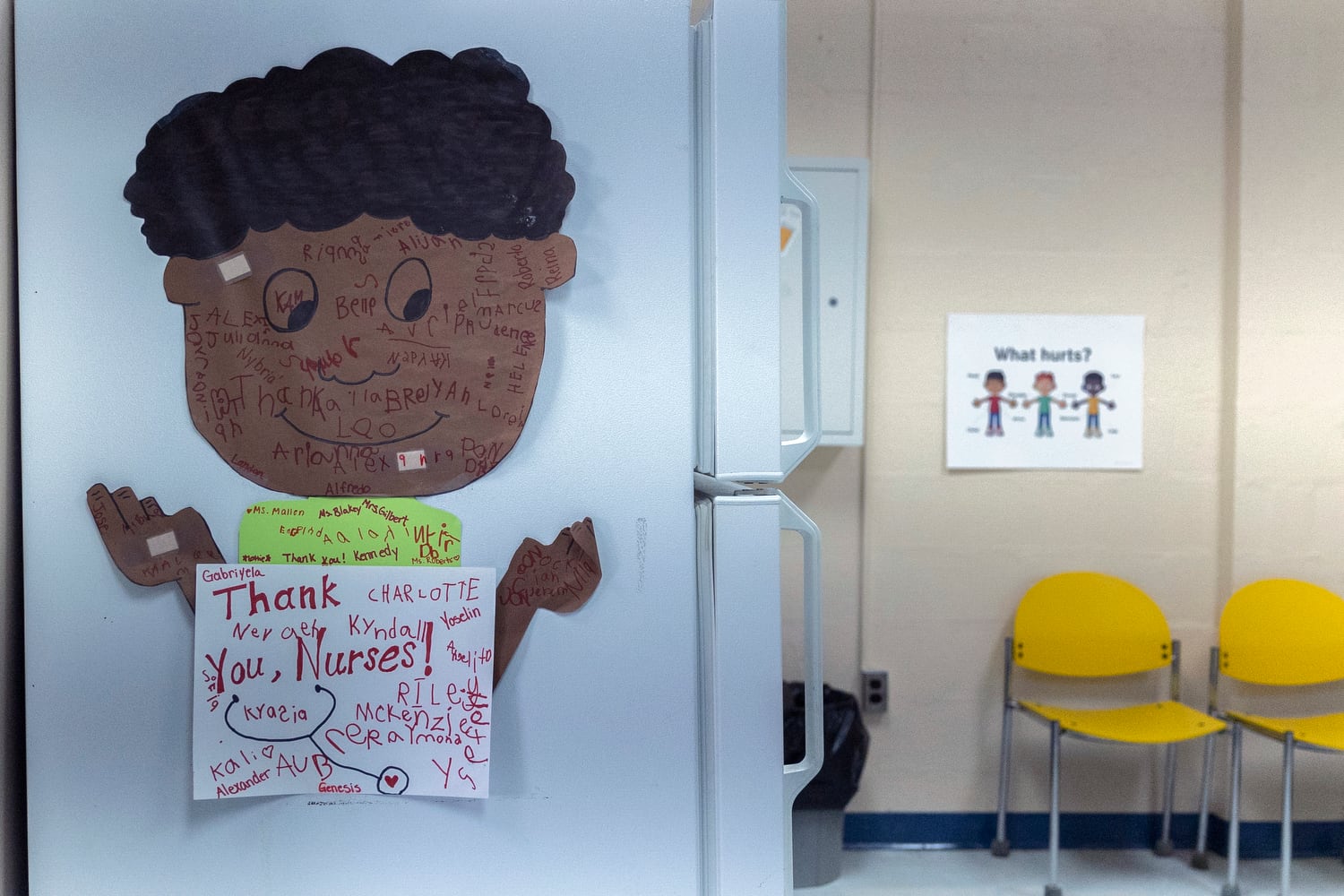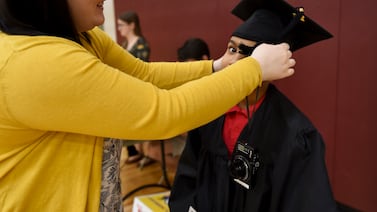Sign up for Chalkbeat Newark’s free newsletter to get the latest news about the city’s public school system delivered to your inbox.
Newark Public Schools nurses will get 4.5% annual raises, an extended workday, and higher starting salaries for certified staff under a new five-year contract approved by the Newark Board of Education last week.
Since the start of the school year, the district’s nurses, represented by the Newark Teachers Association, have highlighted the need for higher pay, more nurses, and improved working conditions after taking on more responsibility following the pandemic and its effect on student health. Some nurses have said they struggled to pay rent on their previous salary, while others reported seeing a rise in depression, asthma, and anxiety among district students that has contributed to an increase in their workload.
The district employs 86 nurses across its 64 schools, according to Paul Brubaker, Newark Public Schools’ communications director.
The new contract also includes increased tuition reimbursement and a nurse stipend, and extends the workday from six hours and 40 minutes to seven hours, aligning with teachers’ schedules under the district’s new universal school hours implemented this school year.
“Our nurses play a vital role in the health and well-being of our students every day, and this contract reflects our deep appreciation for their dedication,” Superintendent Roger León said in a press release.
The NTA spent nearly eight months negotiating the new agreement with Leòn and other district staff. Evelyn Ayum, the NTA president, called the new contract a historic win because for the first time in recent years, it acknowledges nurses’ unique skills, which include administering medication, monitoring diabetics, checking students with asthma, and supporting parents and staff.
The new agreement took effect on March 1, Ayum said.
“This contract wouldn’t have been obtained without the advocacy of nurses being at school board meetings and telling their story,” Ayum told Chalkbeat on Friday. “By [nurses] activating their activism for change, they received a new kind of respect from this contract, and they now have the groundwork for it to get better and better.”
Similar to the Newark Teachers Union contract, the five-year agreement provides 4.5% annual raises, though each nurse’s raise may be different based on which step of the salary guide they are on. All nurses will also receive a $3,000 taxable stipend that will also be used to calculate their pension contributions, Ayum said.
The new contract raises the starting salary next school year for instructional certified nurses from $65,000 to $67,000; the salary for non-instructional nurses will go from $58,500 to $60,300. By 2029, certified nurses will have a starting salary of $74,000, and the salary for non-instructional nurses will start at $66,600, according to the new contract. The increases are higher for nurses with master’s or doctoral degrees.
Tuition reimbursement also increases from $26,500 to up to $60,000 with a $600 per credit for course cap. The bump will help support uncertified nurses who are obtaining their certification, attract new nurses, and retain existing ones, Ayum said. School nurses must hold a license as a registered professional nurse in New Jersey, obtain state certification as a school nurse, and have a bachelor’s degree in either school nursing, public health, or health education.
The new five-year contract also requires nurses to attend their school’s Back-to-School night and fall and spring parent conferences as necessary, according to the nurses' contract. Nurses will be able to clear students for sports and educate parents about issues related to asthma and obesity, especially diabetes, which is rising among youth, according to the Centers for Disease Control and Prevention, Ayum added.
The new seven-hour workday for nurses comes after the Newark Teachers Union agreement approved an extended schedule for teachers to add more time for lunch and transition time between periods. Ayum said nurses are used to staying late and helping students as needed, highlighting the importance of their work in schools.
The district’s nurses had been working without a contract since last summer, and roughly 10 nurses attended several school board meetings throughout this school year to urge Leòn and the district’s school board to approve a new agreement.
During a school board meeting in September 2024, Felecia Briggs-Herbert, a nurse at Arts High School with over 30 years of nursing experience, said some district schools are operating with only one school nurse. That falls below the National Association of School Nurses guidelines, which recommends one nurse per 750 students. For students with more complex health care needs, the organization suggests at least one nurse to 125 students.
“Nurses aren’t only relevant during a pandemic. We are essential every day as we care for our students with various medical conditions,” Briggs-Herbert said during that school board meeting. “Nurses are dealing with more and more students under the influence with no real help on top of everything else we are contending with on a daily basis.”
At the same meeting, Carol Wisneiski, a Bard High School nurse with over 17 years of experience in the public schools, said the district needs to fill its nurse vacancies. This school year, the district hired 18 new nurses but continues to hire more as needed, according to Brubaker.
Wisneiski added that nurses are essential to schools and the relationships they build with students are important when caring for them. While treating a student at Central High School, she noticed that the student looked like she was under the influence, but Wisneiski knew the student wasn’t on any substances. Wisneiski and the nurse she was working with quickly realized the student needed to go to the hospital, where she was diagnosed with diabetic ketoacidosis, a complication of diabetes.
“Folks tend to think that a nurse is a nurse,” said Wisneiski when talking about school nurses and the specialized work they perform in schools. “I can tell you, you can’t put any nurse anywhere.”
Jessie Gómez is a reporter for Chalkbeat Newark, covering public education in the city. Contact Jessie at jgomez@chalkbeat.org.






